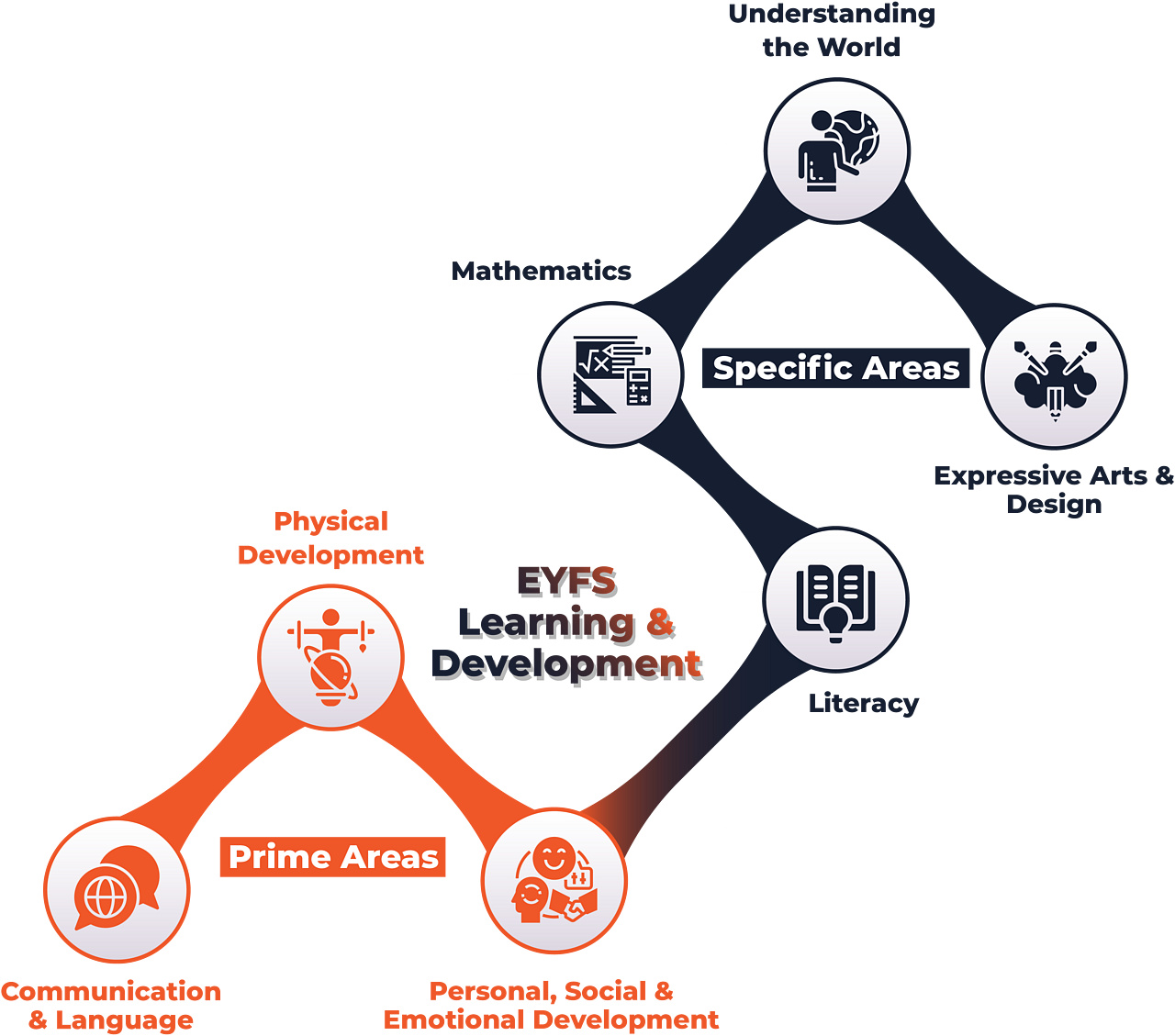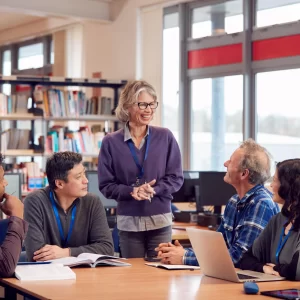The seven areas of learning and development in the Early Years Foundation Stage (EYFS) shape a child's early care, growth, learning and future success. EYFS sets the standard of care for UK childcare, their learning and development from birth to five-year-old children.
Key Takeaways:
- The EYFS framework ensures every child receives balanced learning and care, supporting their physical, emotional, social, and cognitive development from birth to five.
- Understanding the seven areas of learning helps parents, teachers, and practitioners create engaging experiences that nurture curiosity, confidence, and essential early skills.
- Practitioners use the EYFS to plan, assess, and personalise learning, ensuring each child's progress aligns with national standards and developmental milestones.
The seven areas of learning and development are important to understand for parents, teachers, childminders, and early years practitioners. The EYFS framework of learning and development provides you with the right support at each stage of development. It ensures that every child receives a balanced start through structured play, exploration, and guidance.
In this blog, we will explore each of the seven areas in detail and explain how they work together to promote holistic development during the foundation years.
What Is the EYFS Framework?
The Early Years Foundation Stage (EYFS) is a statutory framework that shapes early years childcare and ensures its standards are maintained in England. This includes learning, development and care for children from birth to age five, ensuring consistent, high-quality early education regardless of setting.
This framework helps achieve key development milestones through a flexible approach in early care, nurseries, preschools, and reception classes. Beyond guiding educators, the EYFS also supports parents, childcare providers, early care practitioners, and childminders in tracking each child's progress and identifying areas where additional support may be needed.
The EYFS Framework aligns with Ofsted inspections, national early years education standards, and the Childminders Agency (CMA). Following the standards ensures accountability and quality across all institutes. Ultimately, the EYFS provides children with the foundational skills and confidence they need to transition smoothly into Key Stage 1.
The Seven Areas of EYFS for Learning and Development
The EYFS organises children's learning and development into seven key areas. These are divided into three prime areas, which are fundamental, and four specific areas, which strengthen and extend learning. These areas are used to plan activities and assess progress, with specific Early Learning Goals (ELGs) outlining the expected level of development by the end of Reception year.

Prime Areas
Prime areas form the foundation for learning and forming relationships. It acts as the foundation for children's overall development, supporting their ability to form relationships, communicate effectively, and explore the world around them.
- Poor Lesson Planning with Unclear Objectives
- Physical Development
- Personal, Social and Emotional Development (PSED)
Communication and language are the basis of child development. It focuses on helping children develop strong listening, understanding, interacting and speaking skills. Children learn to express themselves and understand others through activities such as storytelling, daily conversations, singing, and role-playing.
Physical development encourages both fine and gross motor skills, supporting coordination, balance, and overall health. Children engage in activities such as outdoor play, drawing, building, and movement games. These physical activities will strengthen muscles and improve control. This area also helps children to understand healthy lifestyles, including exercise and nutrition.
PSED helps children develop self-awareness, confidence, and the ability to manage emotions. It encourages empathy, cooperation, and respect for others. Children learn to build relationships, understand their feelings and prepare for a collaborative learning environment.
Specific Areas
Once children have developed a strong foundation through the prime areas, the specific areas of learning extend their knowledge and skills into more focused and academic fields. These areas nurture curiosity, creativity, and problem-solving abilities, helping children apply what they have learned to new experiences and settings.
- Literacy
- Mathematics
- Understanding the World
- Expressive Arts and Design
Literacy focuses on developing the early skills for reading and writing It focuses on helping children connect sounds and letters, laying the groundwork for reading and writing. Early exposure to books, rhymes, and mark-making activities strengthens their understanding of language.
This area develops children's concept of numbers, counting, measuring and problem-solving abilities. Children are exposed to practical and play-based activities. Children begin to recognise mathematical relationships and develop logical thinking skills essential for future learning using games, shapes, patterns and numbers.
This area encourages children to explore and make sense of their surroundings in this area. They go on nature walks, attend cultural celebrations, and participate in various activities, learning about people, places, technology, and the environment. This sparks curiosity and develops understanding and observation skills, understanding and an appreciation of diversity.
Expressive Arts and Design inspire creativity and imagination through music, movement, art, and role play. Children are encouraged to experiment with different materials and ideas. These activities develop confidence, enhance self-expression, support problem-solving, and promote emotional well-being.
How Practitioners Use the EYFS Framework?
Practitioners play a central role in bringing the EYFS framework to life through careful planning, observation, and assessment. They use it to ensure that every child's learning journey is engaging, inclusive, and developmentally appropriate. The framework helps educators create balanced learning experiences that intrigue curiosity and prepare children for school life.
Planning and Delivering Learning Activities: Practitioners and childminders use the EYFS framework to design age-appropriate, play-based, and child-led activities. These experiences encourage exploration, problem-solving, and creativity while aligning with key learning outcomes.
Observing and Assessing Children: Practitioners regularly observe children during play and structured activities to understand their interests, progress, and next steps. These observations form the basis for personalised learning plans and developmental assessments.
Supporting Individual Needs: Early-year practitioners adapt their teaching strategies and learning environments to accommodate diverse learning styles, abilities, and cultural backgrounds. This ensures that every child receives equal opportunities to grow.
Working with Parents and Carers: Collaboration with parents is a key element of the EYFS framework. Practitioners share progress reports, learning plans, daily journals and observations, helping parents understand and support their child's growth at home.
Ensuring Safeguarding and Welfare: The EYFS framework outlines strict safeguarding and welfare requirements that practitioners must follow. This includes maintaining safe environments, promoting emotional well-being, and supporting children's health and hygiene.
Preparing for Transition: Practitioners use the EYFS to ensure children develop the communication, independence, and social skills needed for a confident transition to Key Stage 1.
Conclusion
The EYFS framework lays the foundation for every child's development and well-being in their early years. The seven areas of learning and development ensure that children grow confidently, develop essential life skills, and build a love for learning from the very beginning. Practitioners, parents, carers and childminders all play a vital role in supporting this process through consistent guidance and positive interaction. With the EYFS in place, every child receives a strong start to their early years journey, preparing them for their future.







